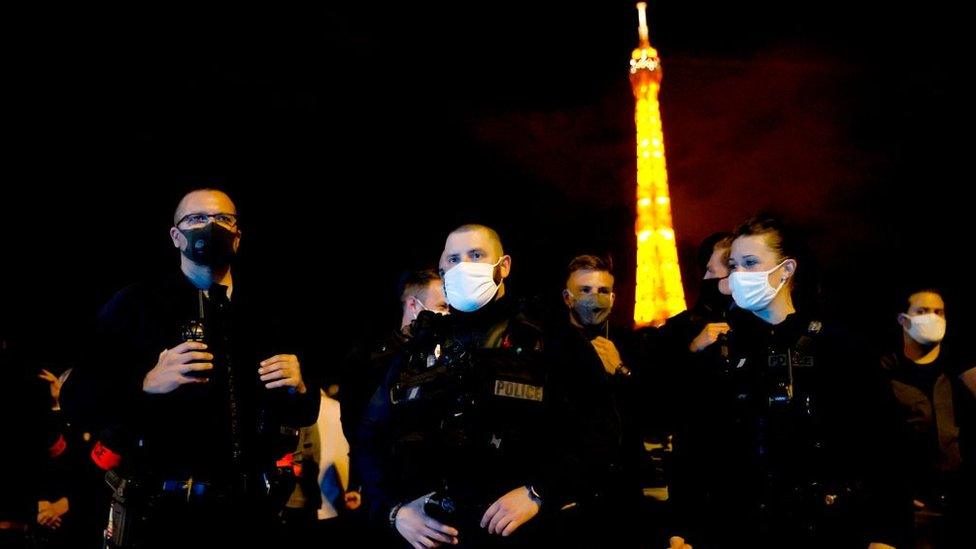France backs away from chokehold ban following police protests
- Published

Police unions and officers in France deny racism is rampant within their ranks
The French government has dropped plans to ban the use of the controversial chokehold method during arrests, following pressure from police unions.
The country's top police chief told staff the technique would no longer be taught in police schools, but could continue to be used until an alternative was found.
The government had announced a ban following anti-racism protests.
In response, police organised five days of their own demonstrations.
France has seen a wave of anti-racism marches sparked by the death of George Floyd, an African American man killed by a white policeman who knelt on his neck for almost nine minutes.
The death of Adama Traor├ę in Paris in 2016 has been likened to the killing of George Floyd. Protesters in France held signs displaying his name and have accused police of using brutality towards minorities.
The demonstrations led Interior Minister Christophe Castaner to announce that there would be "zero tolerance" of racism in law enforcement, and a ban on the chokehold method - where pressure is applied to the neck of a suspect.
But police unions and officers deny racism is rampant within their ranks. In a series of counter-protests, some rallied on the Champs-├ëlys├ęes, throwing their handcuffs on the ground.
On Monday, national police director Fr├ęd├ęric Veaux sent a letter to staff clarifying the announcements made by the interior minister. In it, he said the measure would no longer be taught in training schools but could be used "with discernment".
The letter confirmed that a working group would be set up to investigate alternative measures to restrain suspects and would report back on 1 September.
There were clashes in Paris as police threw tear gas at protesters who hit them with stones
Who was Adama Traor├ę?
Traor├ę was stopped by police in July 2016 when out with his brother in the Paris suburb of Beaumont-sur-Oise.
The 24-year-old did not have his identity card on him, and ran as the police approached. Three Gendarmerie officers chased him down and detained him. He died in their custody shortly afterwards.
Adama Traor├ę's death in 2016s parked protests
One officer later told investigators he and his two colleagues had pinned down Traor├ę using their bodyweight.
Following the death, violent protests were seen in Paris for several days.
Official reports said he died of heart failure, possibly due to an underlying health condition. In May, the officers who detained Traor├ę were exonerated by a police investigation.
But another autopsy, requested by Traor├ę's family, reportedly suggests it was the police's actions that caused his death.
- Published3 June 2020
- Published13 June 2020